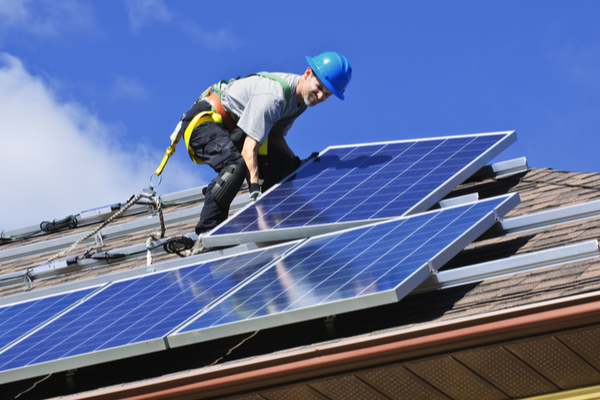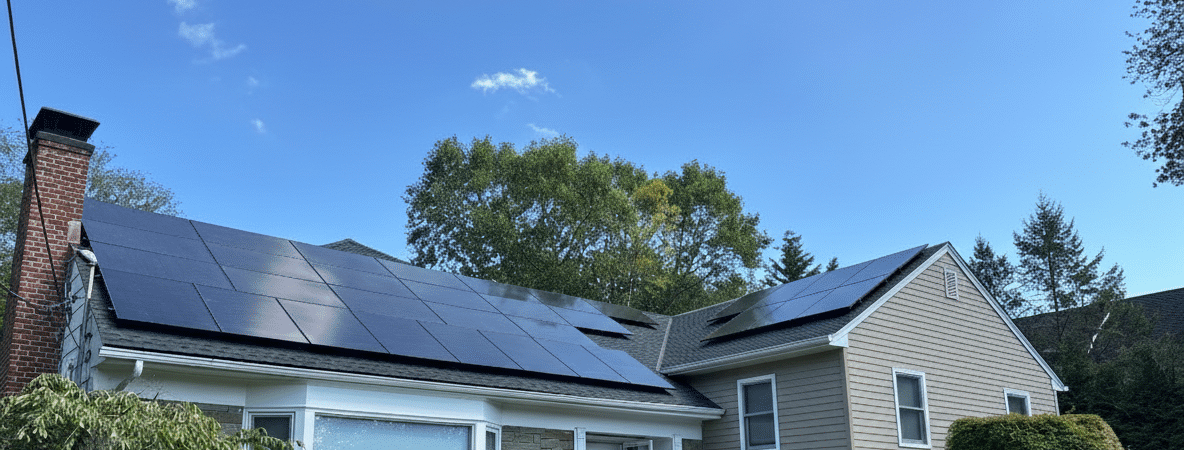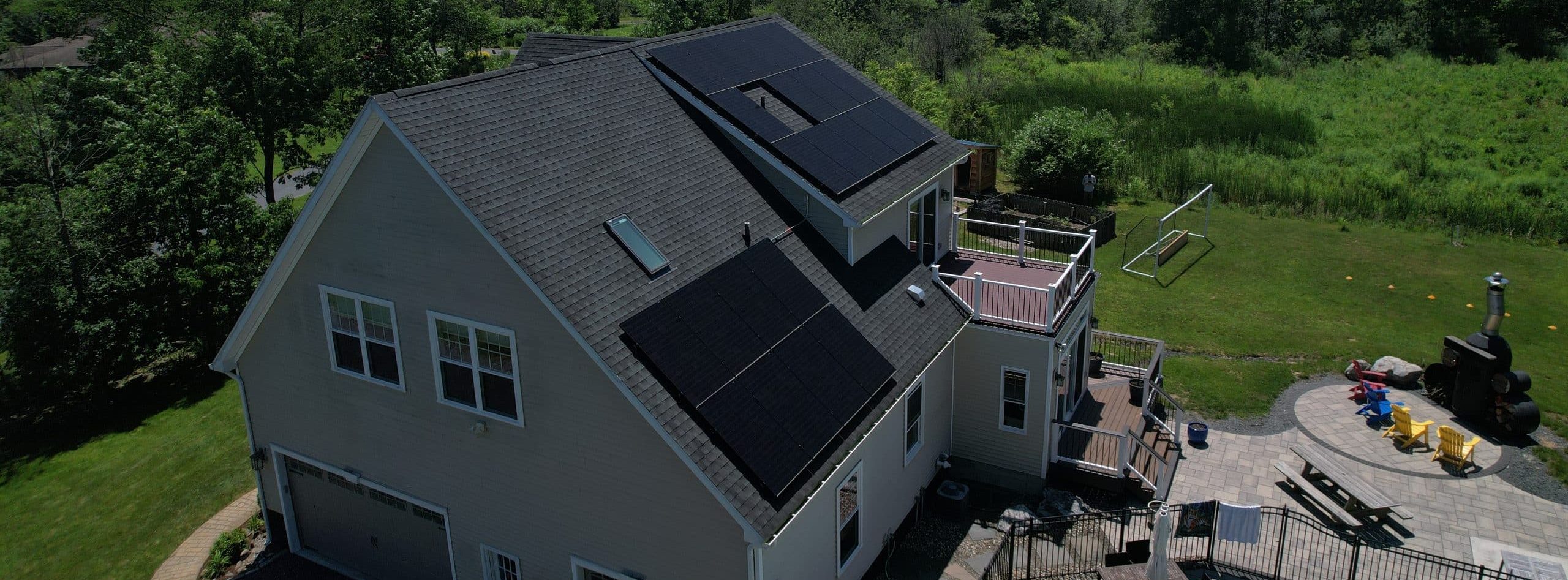There are various pros and cons of solar panels in New Jersey. Solar panels are becoming more popular among homeowners in NJ. In fact, New Jersey plans to have 50% of the state’s energy coming from Class 1 renewable resources by the year 2030. Of course, there’s a lot of people moving towards solar panels because of their impact on the environment. In fact, many are asking “is solar worth it in NJ?” As an NJ homeowner, you should consider installing solar panel systems to energize your residence. Read on for the pros and cons of solar panels in New Jersey.
Pro: Clean And Renewable Energy
Solar panels in New Jersey provide clean and renewable energy. During their operations, solar panels produce energy while reducing the emission of toxic chemicals in Essex, Passaic, Bergen and other New Jersey counties. More so, they eliminate the exposure of greenhouse gases that add to global warming and air pollution. In fact, you can live comfortably knowing you are not contributing to negative environmental conditions. Additionally, the energy it produces is renewable. As a result, unlike the ever depleting fossil fuels, your energy will never run out. Certainly, a pro of solar panels in NJ is the generation of clean and renewable energy.
Con: Solar Dependence
Meanwhile, New Jersey solar panels offer solar dependence. You are reliant on the sun to produce energy for residential and personal use. So, during the night, you cannot generate energy. However, your solar panels should collect enough exposure during the day to produce energy and electricity needed during hours of darkness. In fact, in New Jersey, on average, you receive about 4 hours of peak sun hours. So, if you have a single 370-panel watt, you get a daily electricity production of 1.5 kWh. Or, if you cover your entire roof, which on average in the US, is about 95 panels, you receive 142.5 kWh a day before its dark. Certainly, you would have to make the most of the allotted sunshine to power your NJ home with solar panels.
Pro: Electric Bills
Additionally, solar panels reduce electric bills in New Jersey. When you install solar panels, you generate your own energy resulting in solar panel savings NJ. As a result, you reduce your monthly electric bill, which on average in NJ is about $103, by relying less on your electric utility.
However, it’s important to note that almost all solar customers maintain a connection to the grid. This means that even with solar panels installed, you will still receive an electricity bill. The good news is that the energy produced by your solar panels can dramatically lower the amount you pay each month.
Even those with battery storage typically stay connected to the grid, ensuring you have a reliable energy source at all times. This setup allows you to maximize your savings while still enjoying continuous electricity access.
Con: Initial Costs
However, the initial costs of NJ solar panels are high. The average NJ property owner spends upwards of $10,000 on solar panel installation. Or, they purchase panels for around $2.30 to $3.15 per watt. While there are some initial costs, you can earn your investment back in as little as 4 years. Additionally, you can receive solar panel performance-based incentives. In NJ, you can earn money from Solar Renewable Energy Credits (SRECs), if you received one before the program closed in 2020, or a Transition Renewable Energy Certificate (TREC). The SREC program pays depending on the market supply and demand. But, since the program closed, you only have until 2025 to keep earning from them. Meanwhile, the 15-year NJ TRECs program offers a fixed amount per kWhrs per year. Certainly, the initial cost of NJ solar panels can impact installation decisions.
Pro: Home Value
Finally, solar panels in New Jersey can increase home value. In NJ, home equipped with solar panels have the potential to sell for 9.9% more than homes without them. As a result, a median-valued home with a solar system could make a profit of around $32,000. Or, you can calculate your projected home value increase by reviewing a study in the Appraisal Journal. They state that home values increase $20 for each dollar reduced from your annual utility bill. So, if you save about $400 a year on energy bills, you could add about an $8,000 increase to the value of your home. Definitely, solar panel installations in NJ can increase your home’s overall value.
Of course, there are various pros and cons of solar panels in New Jersey. The pros of solar panels consist of producing renewable/clean energy, reducing electric bills and increasing home value. On the other hand, the cons include energy independence and costly initial payments. However, the cons are easily turned into pros when solar panel systems start to produce energy. Clearly, the pros of a solar panel solution outweigh the cons.
Factors Influencing the Cost of a Solar Power System in New Jersey
When considering the investment in a solar power system, several key elements can affect the overall cost. Understanding these factors can help you make an informed decision:
- System Size
The larger your solar array, the more it will typically cost. This directly correlates with your energy needs and how much of your consumption you wish to offset. - Energy Usage
Your current energy consumption plays a crucial role. Households with higher electricity needs may require a more extensive system, potentially increasing costs. - Electricity Rates
The rates you pay your utility company can impact the financial benefits of switching to solar. Higher electricity rates can translate into more significant savings over time. - Local Incentives
Depending on your location, you might have access to various rebates, tax credits, or incentives that can reduce the initial expense. Check federal, state, and local programs to maximize your savings. - Roof Size and Configuration
The dimensions and orientation of your roof can influence both the installation logistics and the necessary equipment. Complex roof angles or limited space might require specialized solutions, which can affect cost. - Financing Options
Whether you choose to buy your system outright or opt for financing can alter your initial expenditure. Cash payments may offer long-term savings, while loans or lease agreements provide low upfront costs. Consider consulting financial advisors to determine the best choice for you.
By evaluating these factors, you can better estimate the investment required for solar energy and optimize your system for both performance and savings.
What Happens When Your Solar Power System Generates More Energy Than Your Home Requires?
When a solar power system generates more energy than your home requires, there are a few beneficial outcomes.
- Grid Connection: Your home remains linked to the electric grid, ensuring continuous power supply when your solar panels aren’t producing enough energy. Any excess energy produced is sent back into the grid, which can earn you credits on your electricity bill through programs like net metering.
- Energy Storage Options: By integrating a battery storage system, surplus solar energy can be stored for later use. This means that during peak usage times or at night when solar production ceases, you can draw from your stored energy reserves.
- Backup Power: Stored solar energy in battery systems can provide crucial backup power in case of an outage, keeping essential appliances running until the grid connection is restored.
These systems not only help optimize your energy consumption but also offer financial and functional advantages, ensuring that none of your solar investment is wasted.
How Does Solar Power Work with Utility Providers in New Jersey?
When you decide to go solar in New Jersey, a seamless collaboration with your utility provider is essential to unlock the full benefits of your solar investment. Here’s an overview of the process:
- Interconnection Application
This journey begins with submitting an interconnection application to your utility company. This step ensures your system is safely connected to the grid. - Installation and Documentation
After your solar system is installed, all necessary documents are forwarded to the utility company. These documents are crucial for obtaining official approval to switch on your system. - Permission to Operate (PTO)
Once everything is in order, the utility company gives the all-clear, known as Permission to Operate (PTO). This authorization allows your solar panels to start generating power for your home. - Net Metering
New Jersey’s net metering program is a significant perk for solar panel users. When your system produces more energy than your household consumes, the excess power is fed back to the grid. You’ll see credits for this extra power on your utility bill, reducing overall costs. - Incentive Enrollment
Your solar system also becomes eligible for the Solar Renewable Energy Certificates (SREC) program. By registering with platforms such as SRECTrade, you can participate in this incentive, enabling you to earn additional compensation for the clean energy your panels produce.
By understanding these steps, you can make the most of your solar power system in New Jersey, ensuring a smooth transition to sustainable energy and maximizing your financial benefits.
Benefits of Adding a Home Battery to Your Solar Power System
When you enhance your solar power setup with a home battery, you unlock a host of advantages that extend beyond mere power generation.
1. Uninterrupted Power Supply
One of the primary benefits is the security of having a continuous power supply during grid outages. With a home battery, your stored solar energy is available to keep essential devices and appliances running. This comes in handy during unexpected blackouts, ensuring you remain unaffected by external grid failures.
2. Increased Energy Independence
A home battery allows you to store excess energy generated by your solar panels during peak sunlight hours. This stored energy can be utilized when the sun isn’t shining, enhancing your energy autonomy and reducing reliance on the grid.
3. Optimized Energy Usage
Home batteries enable you to prioritize the areas or appliances that receive power during an outage. This means critical appliances like refrigerators or medical equipment can continue operating, providing peace of mind and maintaining your quality of life during disruptions.
4. Potential Savings and Efficiency
By using stored solar power, you can potentially lower electricity bills. During periods when energy rates are high, such as at night or during peak demand, you can tap into your battery reserves, thus optimizing your solar investment.
5. Compliance with Safety Standards
Unlike standalone systems, which automatically shut down during outages as per electric regulations, a whole solar system integrated with a battery allows parts of your system to keep functioning. This ensures safety while maintaining essential power.
Adding a home battery is not just an upgrade; it’s a strategy to maximize the efficiency and reliability of your solar energy system. Whether for continued power during outages, reducing costs, or achieving greater energy independence, the benefits are compelling.
How the State Property Tax Exemption Works for Solar Installations in New Jersey
Boost Your Home’s Value Without Extra Taxes
Installing solar panels is a great way to enhance the value of your home. Typically, when you make significant home improvements, your property value increases, and so do your property taxes. However, New Jersey offers a beneficial property tax exemption for homeowners who choose to go solar.
No Added Tax Burden
In New Jersey, the installation of solar energy systems won’t raise your property tax bill. The state recognizes the increased value that solar installations bring to your home, but they exempt this added value from being taxed. This means while your home becomes more valuable with solar panels, you don’t face higher property taxes as a result.
Stay Greener and Wealthier
With this exemption, not only do you contribute positively to the environment, but you also enjoy the financial advantages without the worry of additional taxes. It’s a win-win situation for New Jersey residents considering solar as an option.













